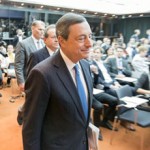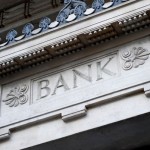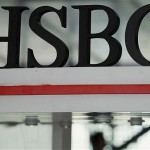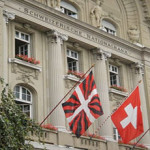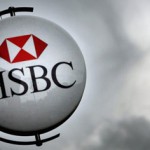Stagflation for HSBC Means Russian Ruble Seen Weakening
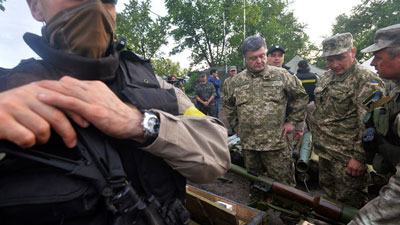
The weakest pace of economic growth in five years combined with the fastest inflation (RUCPIYOY) in three are prompting the most-accurate ruble forecaster to predict steeper declines for the currency.
The ruble will fall 9.2 percent to 37.50 by year-end, said Alexander Morozov, chief economist for Russia and the Commonwealth of Independent States at HSBC Holdings Plc, who topped Bloomberg’s ruble-dollar rankings for the four quarters ended June 30. Otkritie Asset Management sees “nothing good” for ruble bonds, which have delivered the worst returns in dollar terms this year among 31 emerging markets tracked by Bloomberg.
Morozov revised his view from an earlier 35.40 per dollar in March as the Ukraine crisis sparked heavier capital outflows in the first half than for all of last year, and deterred local companies from investing. Russia risks joining emerging-market nations facing stagflation, Ksenia Yudaeva, the central bank’s first deputy head, said in January.
“Growing investment risks will lead to a deceleration of capital investments,” Moscow-based Morozov said by phone July 7. “The economic conditions are now worse and we must assume the currency will weaken more than we forecast earlier.”
Downward Trend
While 200 basis points of rate increases by the central bank have helped the ruble climb 5.3 percent since President Vladimir Putin’s incursion in Ukraine started March 1, the currency is still the fourth-worst performer against the greenback among 24 emerging-market currencies monitored by Bloomberg this year with a 3.5 percent decline.
Inflation in Russia reached 7.8 percent in June, the highest level since August 2011. Price growth will slow to 6.85 percent by the end of the year, according to analysts surveyed by Bloomberg. That’s 85 basis points above the central bank’s forecast.
Net capital outflow totaled about $80 billion in the first half, Economy Minister Alexei Ulyukayev said July 7, compared with $59.7 billion for 2013. Economic growth slowed to 0.9 percent in the first quarter as fixed capital investment slumped 7 percent, Federal Statistics Service data show.
The pace of growth “conceals the underlying downward trend,” Morozov said in a July 7 research note titled “Home-made Stagflation.” HSBC and Markit Economics’ purchasing managers’ index for Russian manufacturing has held below the threshold that separates growth from contraction since October.
Carry Trade
An unemployment rate of 4.9 percent in May means Russia isn’t experiencing stagflation, Ivan Tchakarov, economist at Citigroup Inc., the third-best ruble forecaster in the last 12 months, said yesterday. The ruble will weaken “at a smooth pace” to about 35.00-35.50 per dollar by year-end, he said.
Russia’s ruble bonds have lost 4 percent so far this year, the worst performers among emerging markets tracked by Bloomberg. The yield on the nation’s February 2027 bonds is up 16 basis points since February to 8.52 percent today. The ruble added 0.4 percent to 34.0940 per dollar as of 11:43 a.m. in Moscow.
The ruble’s potential declines may curb appetite from overseas investors who borrow in countries where rates are low and buy riskier developing-nation assets, according to Dmitry Kosmodemiyanskiy, a money manager at Otkritie Asset Management in Moscow. Foreign investors hold more than 20 percent of outstanding local government notes, according to central bank data.
“OFZs will be one of the first to suffer due to the high share of foreigners and higher political risks,” he said in e-mailed comments. “The ruble’s weakness scares away the carry traders.”
Tensions Spike
Ukrainian rebels seized a town in the Luhansk region yesterday after a retreat from eastern strongholds as European Union states considered expanding a list of Russians facing sanctions.
“The recent spike in geopolitical tensions with the Russia-Ukraine stand-off will likely have long-lasting negative effects on private fixed investment growth in Russia,” HSBC’s Morozov wrote in his report. “This will hamper Russia’s economic recovery.”
Source: bloomberg









